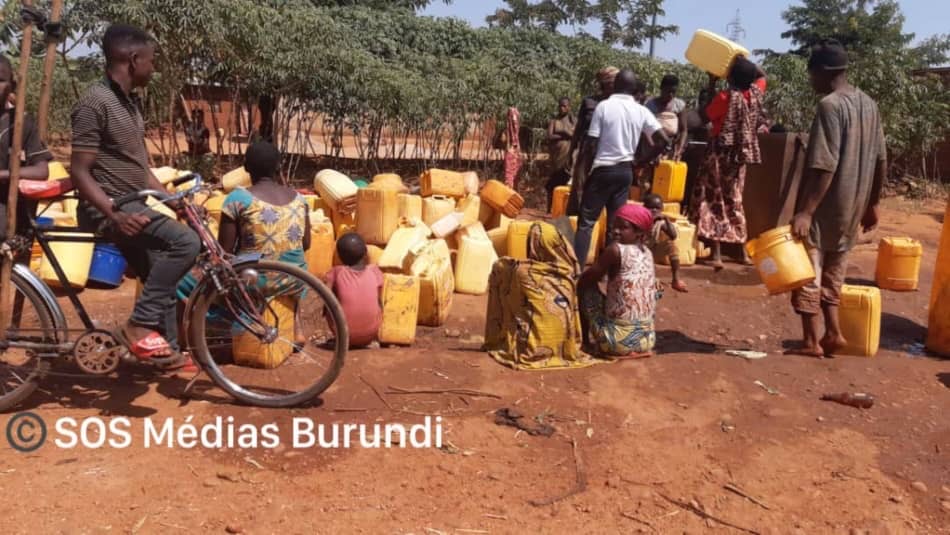Bujumbura faces a persistent water crisis : the population is running out of patience

SOS Médias Burundi,
Bujumbura, July 4, 2025 – In Burundi, the shortage of drinking water continues to worsen, affecting the commercial capital, Bujumbura, as well as other cities, urban centers, and rural areas. Faced with prolonged power outages and the lack of sustainable solutions from Regideso, the only state-owned water and electricity distribution company, the population is growing impatient and fears a health crisis as the dry season approaches.
The shortage of drinking water continues to severely affect several neighborhoods in Bujumbura, the commercial capital of Burundi. In some places, residents go more than three days without a single drop of water. This situation has become almost commonplace, but it fuels deep discontent with Regideso, the national water and electricity distribution company.
« We no longer complain because we’re called to resilience. We know our turn will come after two or three days, » bitterly confides a resident of the south of the capital.
For many, water rationing has become a way of life. No one is spared, but business owners, particularly restaurant and bistro owners, are suffering direct consequences. Water is essential for maintaining hygiene, and their business depends on it.
« We’re having enormous difficulty keeping our premises clean, » laments the manager of a restaurant located in the city center.
Health consequences are becoming increasingly worrying. The lack of hygiene in busy public spaces raises fears of a resurgence of uncleanness-related diseases or the consumption of unclean water.
A crisis that goes beyond Bujumbura
The problem is not limited to Bujumbura. Other cities, urban centers, and several rural areas across the country are also affected by this recurring shortage. The situation is almost widespread, with populations in different regions of Burundi facing the same difficulties accessing drinking water.
Regideso, the only state-owned company responsible for water and electricity distribution, is still struggling to find a lasting solution to this crisis. It often attributes these shortages to the rapid expansion of habitable areas, linked to rampant population growth, which is putting significant pressure on existing infrastructure.
Faced with criticism, Regideso regularly cites ongoing work, particularly the replacement of outdated equipment and network expansion, to justify prolonged interruptions. But for the population, these explanations are no longer sufficient.
Anxiety grows with the dry season
With the approach of the long dry season, a period when water sources are likely to become even scarcer, anxiety is mounting. Residents, already exhausted, are urging Regideso to act urgently to relieve the suffering of an increasingly exhausted population, both in Bujumbura and in other regions of the country.

